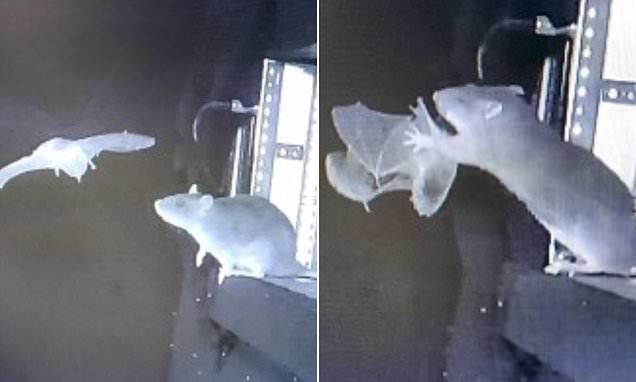Home / Science / Rats Evolve Deadly New Hunting Tactic
Rats Evolve Deadly New Hunting Tactic
26 Nov
Summary
- Brown rats in Germany developed new skills to hunt bats.
- Rats use whiskers to hunt bats in complete darkness.
- New behavior could pose disease risks to humans.

In an unprecedented display of predatory evolution, common brown rats in Germany have been observed developing a new and deadly hunting tactic: ambushing bats. Scientists witnessed these rats leap into the air to catch and kill bats as they entered caves, a behavior never before documented in Europe. This sophisticated hunting occurs in complete darkness, with rats utilizing their whiskers to detect the bats' presence before a swift, precise strike to the neck. This adaptation poses a significant threat to local bat populations, with estimations suggesting a small group of rats could decimate thousands of bats over a winter. Beyond the ecological impact, researchers express concern that this interaction could facilitate the transmission of dangerous pathogens, including coronaviruses, from bats to rats and subsequently to humans. Both species are known reservoirs for zoonotic diseases, making their direct contact a critical area of study. While no current evidence suggests a human health crisis, the potential for disease spillover warrants vigilance and targeted control measures around affected bat caves.




